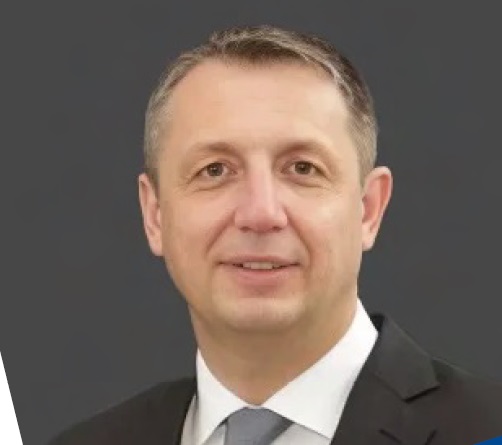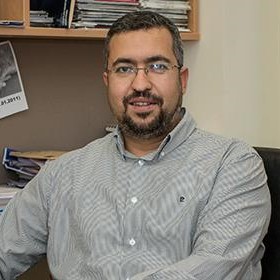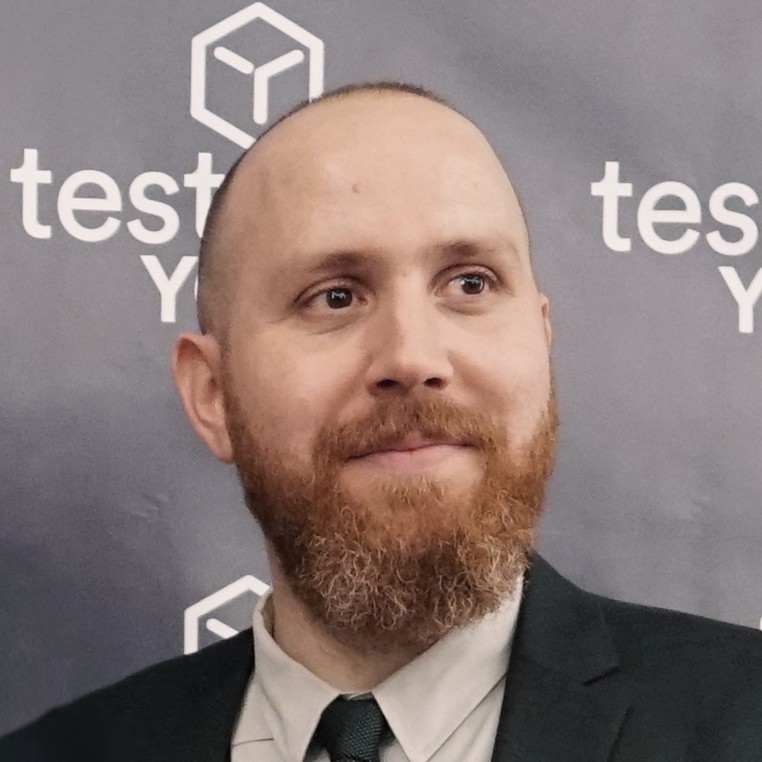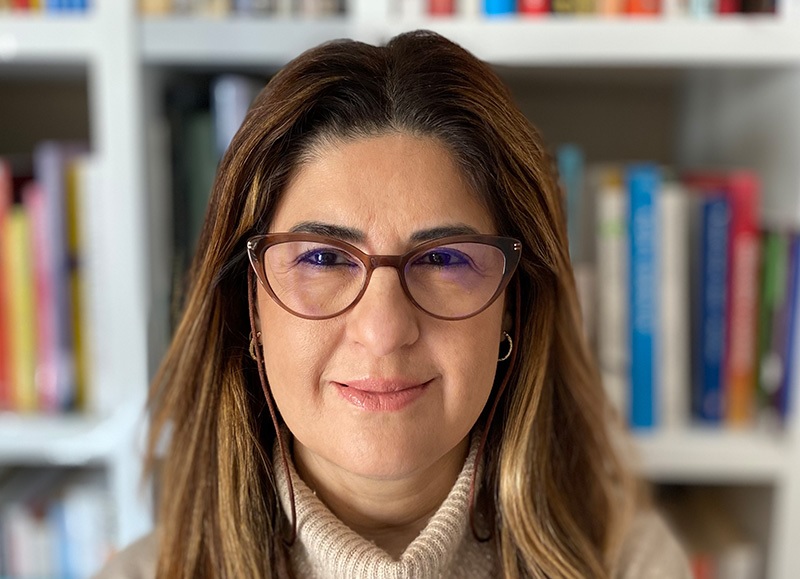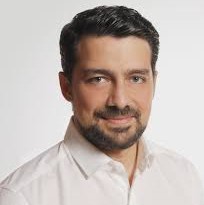PROGRAM OVERVIEW
Launched by Sabancı University, EDU, the Leadership and Management Certificate Program aims to contribute to the development of 21st century leaders, improve their leadership and managerial skills, as well as strengthen their intellectual capital and enable them to manage it effectively.
With this certificate program, professionals will have the opportunity to develop their strategic thinking, leadership and financial skills by enabling them to handle personal, professional and corporate development with a holistic approach, while increasing their corporate influence throughout the organization and developing their skills in creating an inclusive working environment that benefits from the potential of their teams.
In addition, they will gain comprehensive management knowledge beyond their current responsibilities, laying a solid foundation for their future career development. They will have the opportunity to develop an overall business perspective that enables more comprehensive handling of complex issues and more effective communication with different departments in day-to-day management.
PROGRAM OBJECTIVES
- Enhancing the ability to engage, inspire, influence and empower leaders to cultivate more meaningful connection between people, purpose, business and society.
- Provide an environment where participants can discuss why automated and digitized business data has become the primary way for an organization to understand its customers, products and how it performs in a competitive marketplace
- Supporting business leaders to identify and improve their leadership styles and increase working capacity and business efficiency of their teams
- Enabling leaders to be visionary and innovative in change, supporting them to handle the change process with a holistic, inclusive and analytical approach, and enabling them to influence their environment with their energy within the corporate culture and attract their teams to the same vision
- Enabling participants to gain insights how to implement effective strategies in the organization and enhancing their ability to strategically align with the overall business strategy
- Creating opportunities for professionals to have a better and meaningful understanding of the interaction between business strategies and financial decision making
Program Details
Participant Group: Middle-level managers with a min. of 8-10 years of work experience and min. 5 years of management experience
Total Program Duration: 8,5 Days, 51h
Program Fee: 4.500 USD
Program Modality: Case Studies, Experience Sharing, Business Simulation
Format: Hybrid (2 days on Campus & virtual)
Diverse Affiliate Portfolio: Cooperation with SU Faculty Members & EDU Network
MODULE 1: HOLISTIC ORGANIZATIONAL MANAGEMENT
DAY 1: HOLISTIC ORGANIZATIONAL MANAGEMENT
Objective
This session offers a dynamic approach to developing business strategies that are both adaptable and impactful. Participants will explore the true essence of business strategy—what it is and what it isn’t—while diving into the essential tools and methodologies that shape successful strategic planning.
With a focus on practical application, the course will guide you through creating a clear and compelling mission, vision, and core values that resonate across your organization.
You'll learn how to strategically set the direction of your company, ensuring that every decision aligns with long-term goals and the ever-changing business landscape. Through the lens of strategic planning, participants will discover how to set meaningful targets in line with organizational priorities using frameworks like the Balanced Scorecard and the SMART methodology.
The session also emphasizes the importance of target reduction and alignment across departments, ensuring that all parts of the organization move in harmony toward a unified vision. By the end of the training, leaders will be equipped with the knowledge and tools to build a resilient strategy, set clear objectives, and drive sustainable success in a rapidly evolving market.
Content
Business Strategy
- What is Business Strategy? What is it not?
- What are the Key Tools / Methodologies Used in Strategic Planning Processes?
- How are Mission, Core Values, and Vision Created?
- How is the Direction of the Company Determined through Strategic Planning?
- Characteristics of a Successful Strategy
Setting Goals in Alignment with Strategic Priorities
- "Balanced Scorecard" for Companies
- Job Description and Goals
- Goal Cascade and Alignment with Other Departments
- SMART Methodology
Goal Tracking and Feedback
- Corporate Performance Management Process
- Goal Tracking and Review
- Feedback and Action Planning (STAR Methodology)
- Performance and Potential Management
- New Era Competencies
EDU FACILITATOR: EMRE KANAAT
Dr. E. Emre Kanaat is a consultant with over 25 years of experience in senior management positions at various international companies, including Coca-Cola, Citibank, Turkcell Global Bilgi, and Vodafone. He specializes in strategy and commercial matters, with deep expertise in mobile technologies, digital transformation, strategic planning, FinTech ventures, partner management, and individual services. Throughout his professional career, he has led diverse areas such as the establishment of new business units, creation of strategic partnerships, organizational structuring, and the management of digital service lifecycles. He was part of the global digital services and international market strategy team at Vodafone's London headquarters. Corporate performance management, commercial negotiations, organizational structuring, and partnerships have been key areas of focus for him over the years.
Kanaat graduated from the Department of Economics at Boğaziçi University, holds an MBA from Yeditepe University, and a Master's degree in MIS from the University of Houston – Clear Lake. He completed his doctoral studies in Business Administration, focusing on the Internet of Things (IoT) and Digital Transformation, at Bahçeşehir University. Kanaat has also participated as a speaker in various summits and university programs and teaches courses on "Digital Business Management" and "Mobile Marketing" in the graduate programs at Bahçeşehir University.
Currently, Kanaat manages consulting projects in Digital Transformation and Strategic Planning for both private and public organizations, and writes research reports on various topics for government institutions, presenting his recommendations to relevant public authorities.
DAY 2: FINANCIAL MANAGEMENT and LITERACY
Objective
This session provides participants with essential knowledge on the role of finance in business operations, equipping them to understand and apply key financial principles and concepts. The session covers a broad range of topics, from the creation and interpretation of financial statements to liquidity and profitability analysis. Participants will develop skills to evaluate financial performance through various ratios and financial metrics, including leverage and activity ratios. The course also emphasizes the practical application of financial data, using case studies to deepen understanding and improve decision-making in the context of business management. By the end of the program, attendees will be able to confidently analyze and interpret financial reports to support strategic business goals.
Content
- The role of finance and finance manager in businesses
- Ensuring the understanding of periodicity principle and prudence principle with other departments (Cash basis vs Accrual basis, VUK vs IFRS)
- Creating a common perspective on financial statements
- Balance
- Cash Management
- Income statement
- Separation of fixed and variable expenses, usage areas
- Cash flow statement
- Create a Cash Flow Statement,
- Free Cash Flow (FCF)
- Balance
- Financial statements / Case Studies
- Liquidity analysis
- Current rate ve Acid Test rate
- Financial leverage ratios
- Leverage ratio
- Leverage Effect Analysis (OLE, FLE, TLE)
- Activity ratios
- Commercial Debt Turnover Rates
- Profitability ratios
- Profitability ratios in two different ways
- Liquidity analysis
- Creation and interpretation of corporate KPIs / Case Studies
- Financial KPIs (ROI, ROIC, EBITDA vs.)
EDU FACILITATOR: FAİK BAŞAR
In 1972, he graduated from Saint Joseph High School, and in 1978, he completed his undergraduate degree in Business Administration at the Faculty of Administrative Sciences at Middle East Technical University. In 1981, he earned an MBA from Boğaziçi University. In 1990, he successfully completed the "General Management" course at CEDEP, a corporate education institution under INSEAD, one of France’s leading universities.
With over 20 years of professional experience, he has held positions such as Finance Manager, Finance Director, and General Manager at companies including Netaş, Unilever, L’Oréal, Universal Engraving, and Herbalife. He has expertise in financial planning, budgeting, reporting, the creation of financial models and methods, general management, and logistics, with a particular focus on internal training in the finance field.
Fluent in both French and English, N. Faik Başar provides consulting, coaching, and training services in financial matters through his partnership in IfA Education and Consulting.
His training clients include Akbank, Halkbank, YKB, Garanti Bank, Finansbank, Eurobank Tekfen, Ziraat Bankası, TSKB, Türk Ekonomi Bankası, Denizbank, Turkish Airlines, TKV, Lafarge, Eczacıbaşı Holding, Kibar Holding Companies, Sabancı University EDU, Istanbul Bilgi University YGM, Garanti Leasing, Garanti Factoring, Garanti Payment Systems, Garanti Insurance, Garanti Pension, Otoyol, VDF, Global Bilgi, Turkcell, Vodafone, Tadım, Mercedes Benz, Sabancı Holding Companies, Borusan Group Companies, Novartis, BSH, Omsan, Ekol, Akkök Holding Companies, and more. Additionally, he has delivered training on various financial topics to development banks in French-speaking African countries through ADFIMI.
His work in financial coaching has been carried out with companies such as Turkcell, Global Bilgi, Omsan, Tadım, Huhtamaki, Akkök Holding, Teknosa, İDO, Ülker, and VDF.
WEBINAR
MACRO-ECONOMIC MEASURES FOR a GLOBALIZED WORLD
In this webinar session, we will focus on the macro balances of the world economy, analyzing the political and economic factors affecting the global business environment and cultural dynamics. In this framework, we will discuss the cultural dynamics, management and organizational strategies that companies implement at the global, regional and local levels. To provide a background to the topics to be discussed during the session, we will examine how developments in macroeconomic balances at the global level create tensions and asymmetries between national economies. In connection with this, it will be questioned how the commercial and financial dynamics in the world economy are reflected in institutional arrangements and how the positioning of national and international formal and informal organizations in this process is being shaped.
- Agenda in the World Economy
- Is the Risk of Recession Declining in the Short Run?
- Is Inflation Persistent?
- Will Real Sector Problems Spill Over to the Financial Sector?
- Risk Appetite is Declining in Financial Markets
- Global Economic Outlook
- Slowdown - Partial Recession
- Disinflation
- Global Markets
EDU FACILITATOR: ERHAN ASLANOĞLU
Born in 1964 in Ankara. In 1982, after graduating from Ankara Deneme High School, he enrolled in METU Department of Economics and graduated in 1987. He started his master's degree in the same department in 1988 and completed it in 1990. Between 1988 and 1991, he worked as a research assistant at Hacettepe University, Department of Economics. In 1991, he received another master's degree in economics from the University of Reading in the United Kingdom, where he was awarded a Jean Monnet scholarship from the European Community. After returning to Turkey in 1993, he joined the Department of Economics in English at Marmara University as a research assistant and started his doctoral studies in the same department.
He completed his doctoral studies at the beginning of 1997. In 2004, he was promoted to Associate Professor and Prof. in 2011. He left Marmara University Department of English Economics in 2015 and started to work as a faculty member at
Piri Reis University Department of Economics and Finance in the same year. He is currently serving as Vice Rector at the same university. His main areas of interest are Macroeconomics, Turkish and World Economy.
He has published a book, book chapters, numerous articles and papers on these subjects. He gives seminars and trainings on General Economics, Interpretation of Macroeconomic Indicators, Turkish and World Economy; Indicators and Developments.
MODULE 2: LEADING THE FUTURE
DAY 3: HOW IS BIG DATA TRANSFORMING BUSINESS
Objective
Data Analytics is the process of extracting the information hidden in the data using various methods in order to make decisions and take action, and creating value.
In this session we will focus on key concepts of data analytics, its current status in the historical development process and trends in the near future, the steps of the data analytics application process, the challenges and solutions encountered in this process, model validation methods and metrics, machine learning approaches and various methods, industrial good practice examples, mistakes and bad practices.
Content
- Understanding Big Data concepts and Big Data revolution
- What is Big Data and why now?
- Types and sources of Big Data
- Key concepts and components of Big Data
- Business Value of Big Data
- Why and where do we need it?
- Benefits of Big Data
- Data Analytics and how it works
- Lifecycle of Big Data
- Big Data Maturity Model
- Industrial applications
- An enterprise roadmap for
- What do we need and how to get started?
- Fundamental approaches to Business Analytics
- Best and worst practices
- Challenges and pitfalls in Big Data initiatives
- Data Governance
- Business transformation ad data-driven organizations
- Maintaining a Big Data ecosystem
- Infrastructure for Big Data and the open source technology
- Human capital and how to build an effective team
- Innovative examples
EDU FACILITATOR: KEMAL KILIÇ
Dr. Kemal Kilic received the B.Sc. degree from the Electronics Engineering Department, Bogazici University, Istanbul, Turkey, M.Sc. degree from Industrial Engineering Department, Bilkent University, Ankara, Turkey and PhD degree from the Mechanical and Industrial Engineering Department, University of Toronto, Canada. He is currently an associate professor in the Faculty of Engineering and Natural Sciences, Sabanci University, Istanbul, Turkey. His current research and teaching focus includes data analytics, innovation management, digital transformation and decision making.
Dr. Kilic served as Board Member in Information Technologies Panel of the Scientific and Technological Research Council of Turkey (2014-2015), Panel Board Member of NATO System Analysis and Studies (SAS) Group (2015-2018) and Member-at-Large of NATO SAS Panel (2018-…).
He has been heavily involved in development of various industrial education and leadership development programmes for leading groups and conglomerates of Turkey regarding to digital transformation and data analytics at the Executive Development Unit (EDU) of Sabanci University.
DAY 4: DIGITAL TRANSFORMATION AND NEW TECHNOLOGIES
Objective
In this session, participants will explore the transformative impact of digitalization and emerging technologies on various industries. They will gain an understanding of key concepts such as Industry 4.0, the Internet of Things (IoT), and Artificial Intelligence (AI), and how these innovations are reshaping business strategies. The session will highlight the role of digital technologies in improving efficiency, driving automation, and enhancing decision-making across sectors. Additionally, participants will learn about the significant effects of digitalization on the business world, including new opportunities for innovation, greater operational flexibility, and the ability to deliver personalized experiences to customers. The session will also cover the latest trends in cloud computing, and blockchain, and how these technologies are revolutionizing industries worldwide.
Content
- Digitalization and New Trends
- What is Digitalization?
- Industry 4.0, Information Era and its Reflections on Different Domains
- How Enterprises Assess Digitalization? What are their approach?
- Internet of Things
- What is the Internet of Things?
- How is the Historical development of the Internet and Smart Devices?
- IoT Devices and their Operating Principles
- Return on Investment on IOT
- Smart Home Products, Health Sector Products, Wearable Technologies etc.
- Artificial Intelligence
- What is Artificial Intelligence and Machine Learning?
- Basics of probabilistic reasoning, robotics, computer vision and natural language processing
- Applications of Artificial Intelligence in different sectors (energy, health, e-commerce, hi-tech, defense, banking, insurance, etc.)
- Testing of artificial intelligence and its use in automation / productivity areas
- What is Mobility and Cloud Computing?
- World Trends and Statistical Information
- Blockchain and Digital Currency Applications
EDU FACILITATOR: BARIŞ SARIALİOĞLU
IT professional with 15+ years of experience as IT Consultant, Software Engineer, Software Developer and Software Tester for many different organizations.
Highly experienced in Software Development Lifecycle (SDLC), Application Lifecycle Management (ALM), Software Project Management, Business Analysis, Strategy Analysis, Requirements Analysis, DevOps, Agile Methodologies, Usability, User Experience (UX), Customer Experience (CX), Service Design, Quality Assurance and Software Testing.
Has a proven track record of leading multinational | cross-cultural teams and a proven ability in managing different functional teams of HR, Marketing, Sales, Legal and Finance.
Has diverse experience spanning several industries including; telecommunications, banking and finance, defense, aviation, and semiconductor manufacturing. Has been involved in several challenging projects and had the chance to work in several different countries, including Turkey, the United States, Russia, Germany, China, The Netherlands, Azerbaijan and Greece.
Published a number of papers and books within the Software Engineering profession and contribute to the field by regularly attending conferences as a public speaker. Has spoken at more than 50 international conferences in more than 30 countries.
DAY 5: INNOVATION AND INTRAPRENEURSHIP (0,5 Day)
Objective
Understanding entrepreneurship as a way of creating value from scratch is vital for firms as well as individuals. This course will focus on techniques and strategies that foster innovation and entrepreneurship, and critical success factors for entrepreneurs, including knowledge, skills and abilities.
Content
- Understand entrepreneurship and its individual and organizational sources
- Recognize the optimal conditions for the development of individual and corporate entrepreneurship
- Learn the key tasks and decisions needed to turn a business idea into a solid business opportunity
- To teach how to create business plans to identify business opportunity
- Highlight the problems encountered in implementing a plan for a new business opportunity, financing and scaling the business
- Corporate entrepreneurship strategies and tools
EDU FACILITATOR: KEREM KILIÇ
Kerem Kılıç is a faculty member in Strategy and Entrepreneurship at the Faculty of Business Administration at Sabancı University. His research areas include executive behavior, overconfidence, executive contracts, as well as entrepreneurship and entrepreneurial psychology. He teaches courses in Decision Making, Entrepreneurship, and Innovation at the university.
He completed his PhD in Strategy at HEC Paris in 2020. He holds a Master's degree from The London School of Economics in the UK and a Bachelor's degree in Business Administration from Middle East Technical University (METU). In addition to his academic career, he has investment banking experience at JP Morgan and Odin Financial Advisors.
DAY 6: AGILE LEADERSHIP (Day 5) (0,5 Day)
Objective
This session offers a comprehensive introduction to the principles and practices of agility in organizations. Participants will explore the philosophy of agility, focusing on continuous improvement, value-driven development, and simplicity as core concepts. The program covers essential agile roles, their differences, and similarities, while emphasizing the importance of motivation, leadership, and aligning agile principles within organizational processes. Attendees will also gain practical insights into agile techniques, such as defining requirements, creating product backlogs, and differentiating between prototypes and iterations. The session will address the challenges of implementing agility in non-agile environments and provide tools for scaling agile practices and defining key deliverables. Through hands-on examples and interactive discussions, participants will learn to apply agile methodologies to enhance efficiency and adaptability in complex problem-solving.
EDU FACILITATOR: BARIŞ SARIALİOĞLU
MODULE 3: PEOPLE and TEAM MANAGEMENT
DAY 7: DEVELOPING OTHERS AND COACHING
Objective
This session is designed to help leaders cultivate a coaching mindset to effectively support the development of others. Participants will learn how adopting a coach-like approach can enhance agility and foster a culture of growth and self-awareness. The session focuses on the power of empathetic listening and thoughtful questioning to unlock potential, while emphasizing the importance of providing constructive feedback and forward-looking guidance. Leaders will also discover how to use appreciation and recognition as powerful tools for motivating change, driving continuous improvement, and empowering individuals to thrive in their roles.
Content
- What does “Coaching and Being Coach-like” mean in Leadership?
- Coach-like leadership and agility
- Coach-like perspective
- Mindset
- Raising awareness with a coach-like approach
- Empathetic Listening and Asking Questions
- Using coach-like leadership for change and development
- Feedback and Feedforward
- Appreciation
EDU FACILITATOR: VUSLAT ÖZER
Vuslat Özer, born in 1970, started her business life in the banking sector after graduating from Istanbul University Faculty of Economics, Department of Economics (in English). She undertook different roles and responsibilities in the treasury department for about 9 years, which enriched her career. She ended her banking career when she was the Manager of the Trading Desk at ICBC Bank Treasury Department. With the desire to see the whole picture, she passed on the opposite side of the seat and started working at Turkcell, one of Turkey's largest companies. She first worked in the Treasury and Risk Management Unit in Turkcell Treasury Department. Later, she became Treasury Debt Management Unit Manager. Finally, as being Turkcell Group Treasury Manager, she took the responsibility of all affiliates' treasury transactions in Turkey, Ukraine, Belarus, Cyprus, CIS Region, the Netherlands, and Germany. Believing that team spirit is crucial for success, Vuslat carried out the pioneering operations that are widely spoken in the national and international market with her valuable team and won awards for her company with these transactions.
In 2013, she received her professional coaching training from ADLER Learning CE and immediately worked as an “internal coach” in addition to her current position in the company to share what she experienced with the company employees. In 2016, she left her corporate career behind and started working in financial consulting, training, and coaching at her own company which is called MKARE Coaching&Consulting. In 2017, she completed the Adler Learning CE Practicum program which is an ICF Accreditation and received the title of ATC (Adler Trained Coach), ACPC (Adler Certified Professional Coach), ACC (Associate Certified Coach), and in 2020, the title of PCC (Professional Certified Coach).
Believing that change and transformation enrich life, Vuslat designs training programs to share what she has accumulated throughout her career and provides financial consultancy, professional coaching service, leadership, coaching, personal development, and finance training to banks and companies. Participating in social responsibility projects especially for young people and students is a special interest.
WEBINAR
DIVERSITY AND INCLUSION IN THE WORKPLACE
Objective
In this session, participants are introduced to the concepts of inclusion and diversity. Good practices in the context of inclusion, diversity and equality will be presented. What can be done to ensure an inclusive organizational culture will be discussed with the participants.
The types of discrimination experienced during the pandemic and good practices in the current context will be presented. The concept of inclusive leadership will be discussed and the characteristics of being an inclusive leader will be presented.
The main purpose of this session is to bring participants together on inclusive organizational culture.
EDU FACILITATOR: ZEYNEP GÜLRU GÖKER
Zeynep Gülru Göker is a faculty member at Sabancı University Faculty of Arts and Social Sciences and Director of Sabancı University Gender and Women's Studies Center of Excellence (SUGender).
Göker received her undergraduate degree in Social and Political Sciences from Sabancı University (2003) and her doctorate in Political Science from City University of New York Graduate Center (2011).
She has been working as a research and practice faculty member at Sabancı University Faculty of Arts and Social Sciences since 2021. Between 2017-2021, she worked as a researcher affiliated with the Gender and Women's Studies Center of Excellence SUGender, and between 2012-2017, she worked as a PhD researcher at Koç University Migration Research Center (2012-2013) and the Gender and Women's Research Centers of the same university (2013-2017). Afterwards, she conducted research as a researcher and gave lectures in the Political Science department.
Zeynep Gülru Göker, who conducts research and gives lectures in the fields of politics and gender, deliberative and participatory democracy, gender equality policies and care ethics, has many articles published on these subjects in international and national academic journals. She is involved as executive, co-executive and researcher in many research projects supported by the European Union, TÜBİTAK and international organizations.
MODULE 4: BUSINESS SIMULATION
In the CapsimCore Platform; participant teams manage companies that manufacture sensors which are marketed to OEM’s. Each company was created when the government split a monopoly into identical competitors.
Played as a team, this dynamic online experience allows participants to compete against each other or the computer by making decisions in:
- • Production
- • Research & Development
- • Marketing
- • Finance
During the simulation participants demonstrate effectiveness of multi-discipline teams working together and use strategic thinking. They also understand overall interaction and impact of various parts of a business on one another and grow awareness of competition. Competition scores are determined with a Star Scorecard which shows the overall performance of each team.
EDU FACILITATOR: BERKAY KARDEŞ
Berkay Kardeş holds a Bachelor's degree in Chemical Engineering and launched his professional journey at Eczacıbaşı VitrA group, where he kick-started his career as a Customer Service Specialist. Later, he relocated to the UK office and continued to work there. Subsequently, he advanced his position as a Senior Product Manager and then as a Marketing Manager. In 2011, he joined the Akzo Nobel Group and served as a Brands Manager, later progressing to the role of Marketing Manager in the Marshall Executive Board in Turkey.
Throughout his career, he has developed a proficiency in product marketing, budget management, P&L Management, collaborating with international designers, SKU management, profitability, pricing, and market development, especially in the sales & marketing domain. In 2014, he completed his Executive MBA program and sharpened his knowledge of professional business life through Capsim Business Simulations. He passionately advocates "Learn by Doing, Enjoy by Learning" as an active practitioner of business simulation solutions and seeks to promote modern learning models.
Short biography
2015- Today CAPSIM Turkey Partner - Business Development Director, Business Management Simulation trainer
2013-2015: Marketing Director, Akzo Nobel Marshall
2013-2015: Sabancı University Executive MBA program
2011-2013: Director of AkzoNobel Marshall Brands
2010-2012: Eczacıbaşı EYAP Marketing Manager
2008-2010: Eczacıbaşı EYAP Senior Product Manager
2007-2008: VitrA UK Ltd. After Sales and Customer Relations Manager
2005-2007: Customer Service Specialist
2003-2004: Paksan San. Sales Responsible
1999-2003: Istanbul Technical University Chemical Engineering Degree
Frequently Asked Questions
The program aims to contribute to the development of 21st-century leaders by improving their leadership and managerial skills, as well as strengthening their intellectual capital. It seeks to enable professionals to handle personal, professional, and corporate development holistically, increase their corporate influence,
and create inclusive working environments. It also provides comprehensive management knowledge beyond current responsibilities, laying a solid foundation for future career development.
The program is designed for middle-level managers with a minimum of 8-10 years of work experience and at least 5 years of management experience.
Strategic thinking: Participants learn to develop adaptable business strategies, set clear objectives, and align them with long-term goals.... They will use tools like the Balanced Scorecard and the SMART methodology.
Financial skills: Participants will gain knowledge of finance in business operations, understand financial statements, and apply key financial principles.... They will also learn to analyze liquidity, profitability, leverage, and activity ratios, and interpret corporate KPIs.
Leadership and influence: The program enhances the ability to engage, inspire, influence, and empower leaders.... Participants will also learn to identify and improve their leadership styles.
Data analytics and digital transformation: Participants will explore data analytics concepts, their historical development, and future trends. They will also learn about the impact of digitalization and emerging technologies like Industry 4.0, IoT, and AI12.
Innovation and Intrapreneurship: The program focuses on fostering innovation and entrepreneurship.
Agile leadership: Participants will learn about agile principles, continuous improvement, and value-driven development. They will also gain insights into agile techniques.
Coaching and developing others: Participants will cultivate a coaching mindset, develop empathetic listening skills, learn to ask thoughtful questions, and provide constructive feedback.
Team management: Through business simulations, participants will work in multi-disciplinary teams and understand the interactions of various parts of a business.
The program uses a hybrid format with 2 days on campus and the rest virtual. It includes case studies, experience sharing, and business simulations.
The total program duration is 8.5 days, amounting to 51 hours.
The program fee is 4,500 USD.




